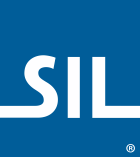Mesobe Fidelat Keyboard Help
Keyboard © 2022. Geʾez Frontier Foundation.
Overview
Using this Keyboard
Mobile Layout & Layers
Tablet Layout & Layers
Keyboard Details
Troubleshooting
Further Resources
Related Keyboard Layouts
Technical Information
Authorship
Overview
This is a language-neutral touch (only) keyboard for mobile devices. The keyboard provides all Ethiopic letters in active use on a single layer in a circular, semi-clockwise orientation. It is meant to be intuitive for new typists and fits more comfortably on a tablet device than on a mobile phone.
Using this Keyboard
Mobile Layout & Layers
The mobile keyboard uses the “Mesob” style layout of letters where letters are arranged in a series of 4 rings. Modifier keys that will change the vowel of a letter appear in the outer most ring.
The Mesob layout also has the goal of providing all letters actively used by the languages written with Geʾez script in a single keyboard “layer”. Given the high number of letters appearing on the keyboard, it is a better fit for tablet devices than for typical mobile phones. Consider using the more compact Harege Fidelat Keyboard which is a similar design and fits more comfortably on the smaller mobile phone screens.
Letters
The most frequently used letters generally appear in the inner rings, and less used letters appear in the out rings. Letters are arranged in a semi-alphabetic arrangement in the clockwise direction, but not strictly so. Some effort is made to group related letters together (related either by sound or shape).

Tapping a key once, the modifier letters on the left (ኡ, ኢ ኣ,) and right (ኤ, ኦ, ዋ) of the outer ring will update. For example, tapping ገ, the modifiers change to ጉ, ጊ, ጋ, ጌ, ጎ and ጓ. If a modifier is tapped, ገ will be updated on screen and replaced with the selected letter.

Note how the ዋ key changes to ጓ. Tapping the ጓ key repeatedly will update ጓ on the screen to the related syllables:
ጐ, ጒ, ጔ and ጕ.
As an alternative, if preferred, holding a key down for a few moments (called a “longpress”) a popup menu appears where you can tap the letter desired. The popup menu for ግ is shown below:

Like the letter keys, the ። and ’ keys also have popup menus that offer the most frequently used punctuation.
Numerals
Tap the `1/፩` key to shift to the numerals layer. The numerals layer presents the Western numbers, Geʾez numbers, and all Geʾez punctuation.

Tapping the `@` shifts to a 3rd layer to access all remaining punctuation:
Punctuation
Punctuation is distributed over two layers on mobile phones, and appears on a single layer on tablets where more screen space is available. The first punctuation layer provides the most frequently used set of symbols:

Tapping the `#+€` key shifts to a final layer to access all remaining punctuation:

Simply tap the `ሀለሐ` key to return to the Mesob letters layers.
Tablet Layout & Layers
The Mesob tablet layout is identical to the mobile phone layout with the exception that a single punctuation layer is used. The single takes advantage of the greater screen space available. The larger punctuation layer is shown in the following image:

Troubleshooting
It is expected some of the newer letters introduced for the Gurage language will not appear on screen when using Keyman with other apps, such as for text messaging. This will be resolved in the near future when companies like Apple and Samsung update their products.
For any other questions, contact us.
Further Resources
Related Keyboard Layouts
Keyboard Layouts for other Ethiopic languages:
Amharic
Awngi
Bench
Blin
Dizi
Ge'ez
Gurage
Me'en
Mursi
Suri
Tigrigna (Eritrea)
Tigrigna (Ethiopia)
Other Internet Resources
More on the Ge'ez Script at Wikipedia.org
More on the Ge'ez Script at Omniglot.com
Technical Information
System Requirements
Due to the keyboard's width it is ideally suited for tablet devices but is also suitable for larger mobile phones.
Unicode Version
This keyboard complies with Unicode 14
Version History
- Version 1.0 12 Nov 2022
- Initial release.
Keyboard Authorship
This keyboard was created by the Geʾez Frontier Foundation. SIL International graciously acknowledges the contribution made by the authors in developing this keyboard and making it freely available for use with Keyman Desktop and KeymanWeb. Their effort assists in enabling people to communicate in their own language.
Copyright and Terms of Use
The Amharic keyboard layout for Keyman Desktop and KeymanWeb is Copyright 2022 Geʾez Frontier Foundation and SIL International. It may be freely distributed and used under the terms of The MIT License.




